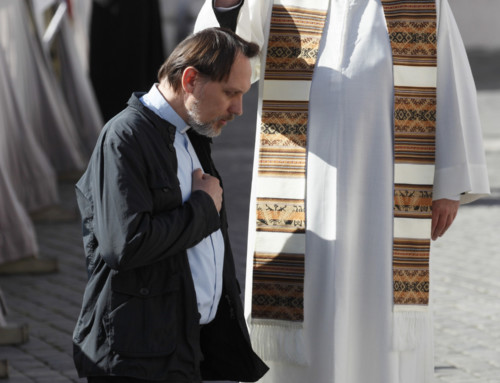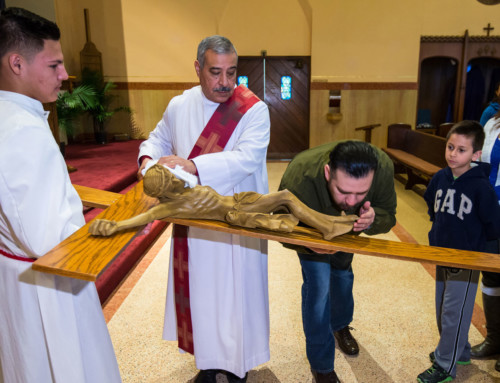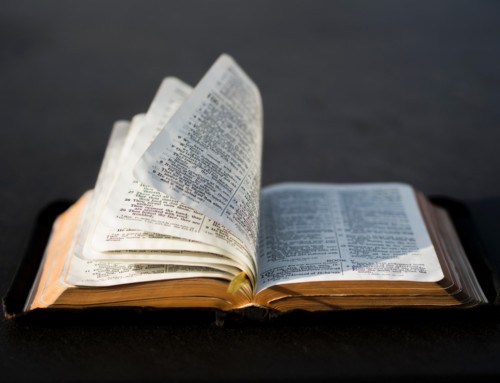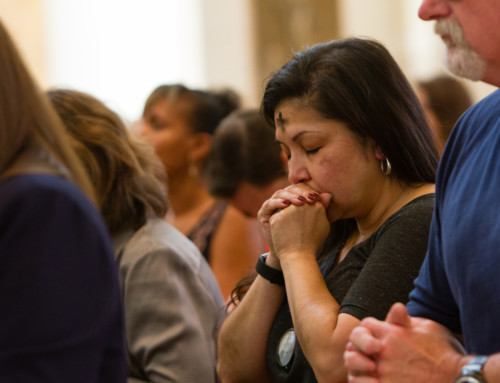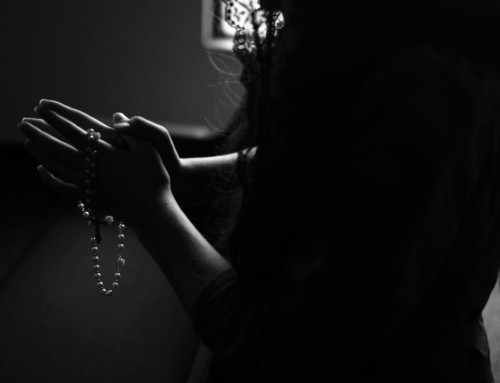When God appeared to Moses on Mount Horeb, he said, “The place where you stand is holy ground” (Ex 3:5). The sixth chapter of Isaiah describes the prophet’s vision of God and hearing the angels sing, “Holy, holy, holy is the Lord” (Is 6:3). Moses reacts to God’s holiness with awe, a deep reverence for the all-embracing majesty of God. Isaiah responds to God’s holiness with an awareness of the profound and infinite purity of God. Both men undergo a spiritual transformation that they attribute to their experience of God’s holiness.
The First Commandment is more than a reference to an abstract idea of God. It is an announcement of the presence of the most holy God, both in outward creation and within the human soul. His existence does call for our faith. Our surrounding culture is filled with many distractions that shut out the majestic voice of our holy and glorious God. St. Augustine, commenting on his troubled youth, speaks of this experience with these words, “You were with me, but I was not with you. Created things kept me from you; yet if they had not been in you they would not have been at all.” But God was not simply a passive presence to Augustine, a diffident lover wondering what to do. Augustine tells us that God spoke with a vigorous voice. “You called, you shouted, and you broke through my deafness. You breathed your fragrance on me. . . . I have tasted you, now I hunger and thirst for more” (The Confessions, bk. 10, no. 27).
This is the best context for appreciating the importance of the First Commandment. As God did with Augustine, he does for
us again—calling, shouting, trying to break through our deafness, breathing his fragrance upon us. Many, indeed, are listening. Numerous Catholics are seeking a deeper relationship with God through daily Mass, frequent reception of the Sacraments, the
prayerful reading of Scripture, retreats, spiritual direction, diverse forms of prayer, and devotional practices. With Augustine, they can say, “You touched me, and I burned for your peace.”
Reflect
- Most people in our culture say they believe in the existence of God. What causes the disconnection between that belief and the behavior of many?
- How do you find that acts of faith, hope, and love bring you closer to God and make your behavior an act of praise to the Lord?
- How can we discover the presence of God in our lives? How can we share an awareness of this reality with others?
This article is an excerpt from the United States Catholic Catechism for Adults (Washington, DC:
USCCB, 2006) 346-347.
Copyright © 2006 United States Conference of Catholic Bishops, Washington, D.C. Used with permission. All rights reserved.


